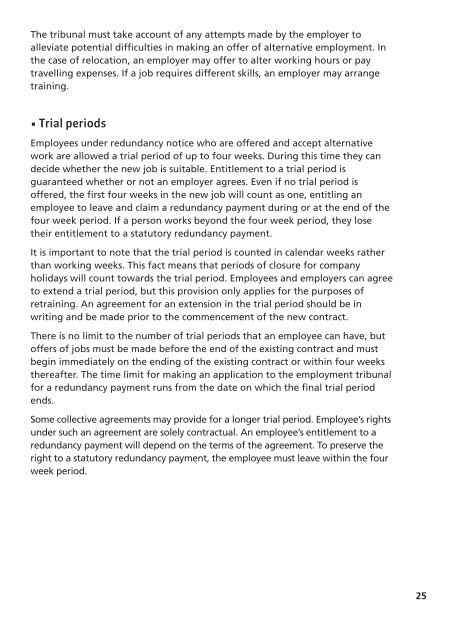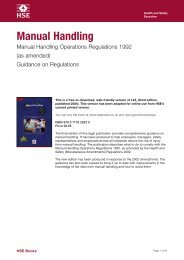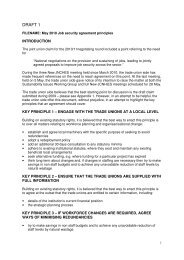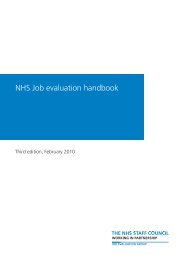Redundancy - Unite the Union
Redundancy - Unite the Union
Redundancy - Unite the Union
You also want an ePaper? Increase the reach of your titles
YUMPU automatically turns print PDFs into web optimized ePapers that Google loves.
The tribunal must take account of any attempts made by <strong>the</strong> employer to<br />
alleviate potential difficulties in making an offer of alternative employment. In<br />
<strong>the</strong> case of relocation, an employer may offer to alter working hours or pay<br />
travelling expenses. If a job requires different skills, an employer may arrange<br />
training.<br />
• Trial periods<br />
Employees under redundancy notice who are offered and accept alternative<br />
work are allowed a trial period of up to four weeks. During this time <strong>the</strong>y can<br />
decide whe<strong>the</strong>r <strong>the</strong> new job is suitable. Entitlement to a trial period is<br />
guaranteed whe<strong>the</strong>r or not an employer agrees. Even if no trial period is<br />
offered, <strong>the</strong> first four weeks in <strong>the</strong> new job will count as one, entitling an<br />
employee to leave and claim a redundancy payment during or at <strong>the</strong> end of <strong>the</strong><br />
four week period. If a person works beyond <strong>the</strong> four week period, <strong>the</strong>y lose<br />
<strong>the</strong>ir entitlement to a statutory redundancy payment.<br />
It is important to note that <strong>the</strong> trial period is counted in calendar weeks ra<strong>the</strong>r<br />
than working weeks. This fact means that periods of closure for company<br />
holidays will count towards <strong>the</strong> trial period. Employees and employers can agree<br />
to extend a trial period, but this provision only applies for <strong>the</strong> purposes of<br />
retraining. An agreement for an extension in <strong>the</strong> trial period should be in<br />
writing and be made prior to <strong>the</strong> commencement of <strong>the</strong> new contract.<br />
There is no limit to <strong>the</strong> number of trial periods that an employee can have, but<br />
offers of jobs must be made before <strong>the</strong> end of <strong>the</strong> existing contract and must<br />
begin immediately on <strong>the</strong> ending of <strong>the</strong> existing contract or within four weeks<br />
<strong>the</strong>reafter. The time limit for making an application to <strong>the</strong> employment tribunal<br />
for a redundancy payment runs from <strong>the</strong> date on which <strong>the</strong> final trial period<br />
ends.<br />
Some collective agreements may provide for a longer trial period. Employee’s rights<br />
under such an agreement are solely contractual. An employee’s entitlement to a<br />
redundancy payment will depend on <strong>the</strong> terms of <strong>the</strong> agreement. To preserve <strong>the</strong><br />
right to a statutory redundancy payment, <strong>the</strong> employee must leave within <strong>the</strong> four<br />
week period.<br />
25

















